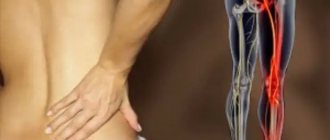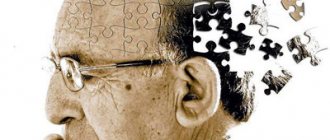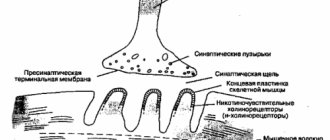The human body can cope with almost any difficulty. For the time being. Even existing “emergency” resources sometimes run out. Stress or severe shocks in a healthy person can cause some disturbances, but in this case recovery will be quick.
When a person does not give himself a break in anything, when there is a constant mountain of work to do both at work and at home, when the body does not receive proper rest, any stress can be the last straw and lead to nervous exhaustion. Nervous exhaustion (or neurasthenia, overwork, chronic fatigue, asthenic syndrome) is the most common form of neurosis today. The joy is the fact that with proper treatment, this problem can be easily eliminated. But correct treatment also lies in identifying the causes of neurosis , and not just eliminating the symptoms.
Information that will be useful:
- What is depression?
- How to determine the presence of a disease?
- with other treatments
Causes
Prolonged physical and nervous stress, combined with insomnia, can quickly deplete a person’s internal reserves, which ultimately leads to exhaustion of the body. Causes of nervous exhaustion include:
- Severe physical stress, such as childbirth in women.
- Overwork as a result of prolonged work.
- Frequent stress and anxiety.
- High level of responsibility.
- Having suffered a serious illness.
- Surgical operations.
- Emotional trauma.
- Increased mental stress.
Due to the fact that a person’s reserve of strength is individual, not all of the above reasons can contribute to an increased consumption of reserves. In addition, you need to know that nervous exhaustion is a slowly developing condition of the body, which at the first stage is manifested only by weakness, fatigue and mild irritability. Gradually it leads to depression, and in the absence of normal rest it turns into serious nervous exhaustion.
Symptoms
Various signs of nervous exhaustion can appear independently or accompany each other. The main symptoms include:
- Chronic (accumulated fatigue).
- A state of apathy, loss of interest in surrounding people and events.
- Drowsiness, feeling of chronic lack of sleep even after a long night's rest.
- Constant negative thoughts.
- Severe fatigue.
- Short sleep, light, not bringing rest and relief.
- Nightmares.
- Insomnia, despite a constant desire to sleep.
- Anxiety and suspiciousness.
- Decreased performance.
- Excessive irritability to almost all external factors, from tone of voice to food smells, etc.
- Severe headache, most often in the forehead and temples.
- Pain in joints or muscles.
- Ringing in the ears, auditory hallucinations.
- Digestive disorders manifested by vomiting, nausea, diarrhea or diarrhea.
- Disorders of orientation in space and coordination of movements.
- Sexual dysfunction in men and women.
- Frequent acute respiratory infections or acute respiratory viral infections due to reduced immunity.
- Blood pressure surges, tachycardia, hypertension, arrhythmia, chest pain.
- The appearance of sweating.
- Feeling of coldness and numbness in the extremities.
- Speech apparatus disorder.
- Sudden outbursts of anger.
Symptoms of nervous exhaustion in women and men, which manifest themselves as signs of vegetative-vascular dystonia (unstable blood pressure, tachycardia, etc.), may also be accompanied by a strong decrease in body temperature, in some cases up to 35 degrees. This indicates physical weakness due to dysfunction of the central nervous system.
With nervous exhaustion, absent-minded attention and the so-called “chronic forgetfulness” syndrome may appear. It becomes difficult for a person to remember and assimilate even the simplest training program.
Consequences
- Communication problems. A person’s character deteriorates greatly, the perception of the world around him and the emotional assessment of current events completely change. The patient becomes irritated, angry, and problems appear in communication, including with his closest people and best friends. As a result, a person closes in on himself and becomes a hermit.
- Loss of identity. With a severe form of exhaustion, the attitude towards life positions and life in general changes, and mental illnesses begin. Manic states, reckless ideas and obsessive desires arise. A person's personality begins to degrade to the point of insanity.
- Serious illnesses. Severe nervous exhaustion entails the development of dysbiosis, thrush, herpes, and oropharyngeal diseases. In addition, such disorders cause disruption of the endocrine and vegetative-vascular systems of the body. Against the background of exhaustion of the nervous system, thyroid diseases may occur, sharp jumps in blood sugar and cholesterol levels, as well as frequent changes in body weight.
- Bad habits. Some people try to drown out their feelings with the help of alcohol, nicotine, drugs, etc. This approach will not alleviate the condition, but will only worsen the situation, leading the person to protracted depression, from which it is impossible to recover without medications and psychiatric therapy. Drug use threatens to develop severe addiction, which is almost impossible to get rid of.
General information
Nervous exhaustion is a painful psycho-emotional state, manifested in the form of contradictory affective disorders, the cause of which is constant moral and nervous tension, depleting the internal psychophysiological reserves of the human body.
As a rule, such pathological emotional-volitional disorders arise as a result of difficult life situations (long work hours, constant stress, lack of proper rest, etc.) and negatively affect a person’s health and all other aspects of his life. Signs and symptoms of nervous exhaustion can range from extreme depression to extreme nervousness, or a combination of these borderline mood disorders.
Naturally, such emotional exhaustion of the psyche (especially in a chronic state) cannot but affect a person’s physical well-being. Against this background, other sometimes quite serious pathologies can develop in the digestive, reproductive, cardiovascular, endocrine and other systems of the human body. In order to avoid such negative consequences, you need to know what causes nervous and moral exhaustion, how it manifests itself, how to relieve emotional stress and how to recover from exhaustion of the nervous system. In the article below we will try to consider in detail the root causes, symptoms and treatment of nervous tension, as well as provide recommendations for its prevention.
Treatment
Nervous exhaustion can cause great harm to a person, so therapy is not always easy; in some cases, hospital treatment is required. Various drugs are prescribed as medical treatment, including:
- Nootropics (Ceraxon, Nootropil, Piracetam, Bifren, etc.).
- Antidepressants.
- Sedatives (Motherwort, Valerian, Phytosed, Novopassit, etc.).
- Vasodilators (Tanakan, Mexidol, etc.).
- Vitamin complexes (Duovit, Polivit, Milgamma, etc.).
All of the listed groups of medications have a large number of contraindications and side effects, so the choice of medication and dosage is made only by a doctor, depending on the general condition of the body and the severity of the disease.
In addition, when diagnosing nervous exhaustion, a doctor may prescribe psychoactive medications that inhibit the central nervous system (Nozepam, Valium, Chlozepid, Diazepam, Ativan, etc.). These medications have sedative, hypnotic, anticonvulsant and muscle relaxant properties, and also reduce feelings of fear and anxiety.
In addition to traditional treatment for nervous exhaustion, homeopathic medicines such as Nux Vomica, Baritu Carb, Lycopodium, etc. are often used.
Tests and diagnostics
In the countries of the post-Soviet space, diagnosing nervous exhaustion is the prerogative of a psychotherapist or psychiatrist, who, based on the existing negative symptoms, dynamic observation, history taking and special tests, are able to recognize this painful condition among similar ones.
Differential diagnosis in this case is very important, since the symptoms of this disease are very similar to other pathologies of a mental, neurological and somatic nature. It is for this purpose that the specialist prescribes various additional laboratory and instrumental tests and studies to the patient.
Thus, the patient will have to pass/pass:
- urine and blood analysis (biochemical, detailed, etc.);
- electrocardiography;
- assessment of hormonal levels;
- immunological testing;
- electroencephalography;
- duplex scanning of blood vessels;
- tests for the content of narcotic and other potent substances;
- Ultrasound of various organs and systems.
In addition, the diagnostician may, at his discretion, prescribe other examinations that will help confirm or refute the alleged diagnosis.
If you suspect an overstrain of the nervous system in yourself or a close relative, you can individually use special online tests that are designed to determine abnormalities in the human psyche. For example, the Beck test, which can be found on the Internet without much effort, will help you identify signs of depression and nervous exhaustion. This test is a kind of questionnaire (questionnaire) that includes a number of diverse questions, the subjective answers to which provide a fairly accurate assessment of a person’s energy and mental potential.
Depending on the amount of points a person receives after passing this test, it is possible to determine with a high degree of probability whether or not he has a depressive state. If suspicions of nervous exhaustion are confirmed, you should definitely contact a specialist, who must make an accurate diagnosis and, if necessary, prescribe adequate treatment. In a modern society of high mental and emotional stress, it would be a good idea for every person to get into the habit of periodically undergoing such testing in order to notice the symptoms of nervous overstrain in time and not give the disease a chance to go into the chronic phase.
Nutrition
A lack of nutrients in the body leads to an imbalance in metabolism and a subsequent disturbance in a person’s emotional state. Proper nutrition, including the required amount of vitamins and microelements, will help resume functioning when the nervous system is exhausted.
The daily menu for nervous exhaustion should be varied and include plant foods, cereals and seafood. To reduce the load on the nervous system, it is necessary to reduce the consumption of fatty foods and simple carbohydrates, as well as salty foods. In addition, it is necessary to exclude processed foods, sausages, caffeine, chocolate, alcohol and spicy seasonings from the diet. For drinks, preference should be given to fresh juices, rosehip infusion and compotes.
Product recommendations
Bread, flour products
Stale or dried diet bread, biscuits and cookies made from uneaten dough are allowed as food.
Consumption of fresh bread and puff pastry products is prohibited.
Meat
The meat must be lean. Consumption of veal, beef, liver, rabbit, turkey, and tongue is allowed. The meat can be boiled or baked.
Fatty varieties, sausages, semi-finished products and canned food are not allowed.
Fish
Consumption of low-fat fish is allowed: perch, pike, cod, seafood.
Caviar, canned food, salted fish, and fried fish are prohibited.
Milk, dairy products
Consumption of milk, cottage cheese, kefir, sour cream, and low-fat cheese is allowed.
Eggs
Only soft-boiled eggs are allowed for food. Their quantity is limited to a maximum of two per day.
Consumption of fried and hard-boiled eggs is prohibited.
Cereals
Consumption of all types of cereals is allowed, from which you can prepare a variety of cereals, puddings, and soups.
Vegetables
Consumption of all vegetables is recommended, with the exception of spicy ones. Potatoes, carrots, beets, pumpkin, zucchini, cabbage, and tomatoes are allowed to be eaten.
Consumption of sorrel, radish, garlic and onions, cucumbers, and radishes is prohibited.
Fruits, sweets
You can eat fresh fruits and dried fruits, honey, and non-chocolate sweets.
Chocolate in any form is prohibited.
Sauces
Tomato sauce, boiled onion sauce, sour cream sauce, and vegetable broth sauce are allowed.
All hot sauces are prohibited. The use of mustard, horseradish, and pepper is not allowed.
Beverages
You can drink herbal teas, rosehip decoctions, vegetable and fruit juices.
Consumption of alcohol, black tea, coffee, cocoa is prohibited.
Fats
You can use vegetable oil and ghee.
Lard and other animal fats are prohibited.
Prevention
Poor sleep, improper daily routine and frequent lack of sleep destroy the body and provoke the development of nervous diseases.
To prevent this, the following rules must be followed as a preventive measure:
- Correctly alternate between rest and work time.
- Ensure yourself a sound and healthy sleep. A good night's rest should be taken very seriously, as constant lack of sleep leads to overwork and fatigue.
- Eat properly.
- Play sports – physical activity relieves stress, helps you relax and increases your vitality.
Treatment with folk remedies
Infusions and decoctions prepared from medicinal herbs will help overcome nervous system disorders. Freshly brewed sage tea is soothing, relaxing and helps relieve stress. Rosehip decoction saturates the body with vitamin C, which strengthens the human immune system, and lemongrass infusion helps eliminate excessive nervous excitability. Astragalus, motherwort, capsicum, knotweed, valerian, and St. John's wort also have a calming effect.
First of all, it must be said that there are organic and functional diseases. Organic lesions include those lesions in which there is a change in the structure of organs and tissues that can be seen, measured and described. These are, for example, erosive ulcerative gastritis, endometriosis, diffuse fibroadenomatosis of the mammary gland, malignant tumors, anemia and many other diseases.
In each case, changes can be seen in the corresponding structures of the body.
On the other hand, there are functional changes
, in which there are no breakdowns in the body that can be “touched”. Such diagnoses include exhaustion of the nervous system, or cerebrasthenic syndrome.
It is correct to say not “exhaustion”, but weakness. In physiology, “exhaustion” is the failure of the conditioned reflex to repeat at a high frequency of the experiment. Nerve weakness can vary in structure and causes.
Natural medicines
NOOTROPS are useful to support exhausted nerves and improve brain activity
including amino acids glycine, taurine, tyrosine, proline, glutamine and others. To provide them in the body, you need to include in your diet lean meat, cartilage, fish, dairy products, seafood, chicken eggs, cereals, seeds, dishes with gelatin, bananas, avocados, beets, pumpkin.
Natural ANTIDEPRESSANTS will also help - this is not only dark chocolate (it is the strongest), but also herring, mackerel, sardines, salmon, cod, salmon, brightly colored fruits and vegetables, chicken broth, seaweed, any nuts, any cheese and porridge - oatmeal and buckwheat .
For those who need not only to relieve tension, but also to calm down and stabilize their mental balance, natural SEDATIVE support
- avocado, papaya, oatmeal, whole grain bread, nuts, mint tea and magnesium-fortified foods (pumpkin seeds, potatoes, any green vegetables, legumes, millet).
What is cerebrovascular disease?
As you know, the nervous system is divided into central (brain, spinal cord) and peripheral (nerves, plexuses, ganglia). In addition, there is a functional division of the nervous organization into parts:
- animal, or somatic
- deals with conscious movement and sensation;
- vegetative, or plant
. It, in turn, is divided into sympathetic and parasympathetic divisions.
Depletion of the central nervous system occurs in various diseases and conditions. Most often, this condition occurs after serious illnesses (for example, diphtheria or meningitis), in which the entire body, and nerve structures, are exposed to toxins.
In addition, a serious factor in the occurrence of cerebrospinal gravis is chronic stress, as well as alcoholism and drug addiction, in which cerebrovascular disease is secondary.
Signs of central nervous system exhaustion
are expressed in the following symptoms:
- irritability;
- tearfulness;
- mood lability;
- poor sleep at night and drowsiness during the day;
- reduced performance;
Of course, these symptoms are characteristic of many chronic diseases, so the doctor needs to exclude the possibility of developing the disease.
Sample menu
Breakfast: vegetable salad with vegetable oil without salt, white omelette without salt, baked, tea.
Second breakfast: apple.
Lunch: vegetarian borscht without salt, boiled beef stroganoff without salt, boiled potatoes without salt, freshly squeezed fruit juice diluted with water in a 50/50 ratio.
Afternoon snack: rose hip decoction, whole grain bun.
Dinner: boiled fish with vegetables without salt or new jacket potatoes without salt, apple pie, tea.
At night: kefir.
city "Stoletnik" No. 6, 2014
Did you like the article? Tell your friends:
Chat with me:
Categories Food-Medicine • Tags: Food-Medicine • Top
Autonomic dysfunction
Depletion of the autonomic nervous system is most common. In this case, the vegetative or plant system lives as if “by itself”, and a “distortion” between its sympathetic and parasympathetic parts is possible. The second and well-known term is VSD, or vegetative-vascular dystonia, which means the same thing. Symptoms of exhaustion of the autonomic nervous system can be very diverse. The main ones include
:
- high or low blood pressure;
- pallor and coldness of the skin, or “hot flashes” and fever;
- sweating or dry skin;
- constipation alternating with diarrhea;
- pronounced weather dependence;
- the occurrence of heart failure.
Signs indicating exhaustion of the nervous system will be incomplete without mentioning decreased immunity. After all, the nervous system, as the main controlling organ, deals with issues of protecting the body. And, in the event that a “failure” occurred in the central apparatus
, then the following diseases may develop:
- diabetes;
- thyrotoxicosis;
- immunodeficiencies.
There is a lot of evidence that severe and constant depletion of the nervous system can lead not only to serious illness, but even to death.
The simplest and most effective example of this kind is constant and prolonged insomnia. If a person is not allowed to sleep for 4-5 days, then there is a high probability of a serious illness, and after a week of insomnia, the exhaustion of the nervous system will be so severe that treatment will be useless.
Diet delicacy!
Soup of Joy
Grind 2 bananas in a blender, pour in, stirring, 2 cups of cold milk (use only whole milk), put on fire. Bring to a boil and season with 2 tbsp. spoons of flour diluted in a small amount of cold water, add honey to taste. Cool the soup, before serving, lightly whisk and garnish with a berry or a sprig of herbs.
How to cope with cerebrovascular disease?
How to treat nervous system exhaustion correctly? First of all, you need to eliminate the traumatic factor. This could be stress, chronic intoxication (alcoholism), lack of sleep, or simply a period of recovery after severe pneumonia. Non-drug treatments for cerebrospinal gravis include
:
- healthy and long sleep;
- motor mode;
- good nutrition;
- positive emotions.
Physiotherapy, massage, and sanatorium and resort treatment are used in therapy. Thalassotherapy, bathing, communication with animals, and long walks have a good effect.
What drugs are indicated for depletion of the nervous system?
Drug therapy includes the administration of adaptogens. These include such remedies as ginseng root, tincture of eleutherococcus, and lemongrass. You can drink coffee in moderation. If you have good dry wine, you can drink it, limiting yourself to one glass a day.
Vitamins are indicated for cerebrovascular disease and nervous system depletion
. First of all, neurotropic vitamins, or B vitamins, should be prescribed. These include thiamine, pyridoxine and cyanocobalamin, or vitamins B1, B6 and B12.
In addition to these vitamins, it is important to take potassium, phosphorus and magnesium supplements to improve cardiac function.
Diet delicacy!
"Calm" salad
Salad with
sesame chicken, mango and spinach with raspberry sauce
Roll 400 g of boiled chicken fillet in sesame seeds and lightly fry in a dry, heated frying pan (without oil). Wash and dry the spinach stem. Peel 1 mango and cut into large cubes. Prepare raspberry sauce: mash fresh or thawed raspberries, mix with soy sauce and 2 tbsp. spoons of olive oil. Cut the finished fillet into slices, place on spinach leaves, put mango pieces on top and pour the sauce over everything.
About prevention
Symptoms of nervous system exhaustion require mandatory treatment as soon as they appear. Chronic stress leads to aggravation of cerebrovascular disease, and it occurs due to:
- constant presence at work;
- poor and conflictual conditions in the family;
- monotonous, monotonous posture, accompanied by muscle tension;
- long-term, chronic infections, including colds.
To have strong nerves that will accurately carry out all your orders, you need to try to get more positive emotions, lead an active life, give up bad habits, and also train your mind and not let it get lazy. And in that case, cerebrovascular disease and vegetative-vascular dystonia will never be your painful and annoying companions.
Usually the cause of nervous exhaustion of the body is physical or mental fatigue. When the body is exhausted, expending more energy than it produces. In addition, nervous exhaustion is provoked by lack of sleep, unhealthy habits, and worries. Signs of nervous exhaustion appear when a person is mentally “burned out.”
Stress often leads to prolonged nervous tension. As a result, exhaustion of the nervous system occurs, and as a result, exacerbation of chronic diseases and depression.
How is neurasthenia treated?
Only a neurologist or psychiatrist can diagnose nervous exhaustion, and a therapist can suspect it. If the psycho-emotional state is severe and lasts more than one month, addictive sedatives may be prescribed. Such potent drugs include Phenazepam. The medication helps well and relieves the symptoms of neurosis, but it is not a panacea.
The main thing is the patient’s desire to get out of depression. This can be done by following the following instructions from doctors:
- Adjust your diet. It’s good if it’s rich in vitamins, proteins and carbohydrates.
- Get plenty of rest and go to bed at the first sign of fatigue. Meditation will help calm your nervous system before bed.
- Walk outdoors for 1-2 hours every day.
- Do not refuse to communicate with your close circle. However, if someone hangs their mental torment on you, tell them about your discomfort and restore personal boundaries.
- Go in for sports or at least do morning exercises.
- Take responsibility for your life. Refuse to play the victim. Everyone feels sorry for the victim, but deep down they consider him a weak-willed person.
Source: s-voi.ru
Symptoms of nervous exhaustion
If a person has nervous exhaustion, the symptoms are present in the form of chronic fatigue syndrome, starting right in the morning, a constant feeling of lethargy and drowsiness. Other signs of nervous exhaustion are as follows:
- The absence of the joys of life, the desire to do something, the existence of negative thoughts and anxious feelings that do not leave a person alone all the time.
- Superficial, interrupted and poor sleep, insomnia, disturbing awakenings.
- Pressure surges, rapid heartbeat, arrhythmia.
- Headaches and migraines.
- Very frequent increase in body temperature up to 37 degrees.
- Lingering colds, cough, stuffy nose all the time.
- Painful sensations in the muscles, most often in the morning.
- Vomiting, abdominal pain.
- Unexplained noises, auditory hallucinations may occur.
If a person has symptoms of nervous exhaustion, treatment is required immediately. Some can overcome the exhaustion of the nervous system on their own, while others need the help of a doctor. In the absence of appropriate treatment, exhaustion depression may begin to develop in the future.
Particular attention should be paid to rapid heartbeat.
In contrast to tachycardia in somatic diseases, which is permanent, nervous exhaustion is characterized by paroxysmal palpitations of varying intensity: the heart either beats very quickly or freezes.
Along with rapid heartbeat, people feel periodic painful sensations in the heart.
In its intensity, heart pain and palpitations can resemble myocardial infarction. However, in case of nervous exhaustion, a rapid heartbeat and heart pain are relieved by a validol tablet, and in case of real angina pectoris, the use of nitroglycerin is necessary to eliminate the attack.
Treating nervous exhaustion
The state of nervous exhaustion is quite common and can cause harm to a person’s health. When the nervous system is depleted, treatment is sometimes difficult and even inpatient therapy may be necessary. To begin with, what you need to do to cure nervous exhaustion is to eliminate the causes that cause it.
Drug treatment
involves the use of a variety of drugs, such as drugs that restore brain cells, nootropics, vasodilators, vitamins and antidepressants. You need to be careful with antidepressants, as they also have side effects. Before treating nervous exhaustion, you should consult your doctor. Only he prescribes doses and medications.
Effective treatment of nervous exhaustion requires normalization of daily routine
. A sick person needs to lead a correct lifestyle, work, rest and eat at the same time every day. Walking and healthy eating are also important.
Sleep needs to be normalized without the use of medications. Relaxation has a good effect. You should only go to bed if you are very tired; you should not read while lying in bed before going to bed. There is no need to force yourself to fall asleep by tossing and turning in bed for several hours. Then it’s better to get up and drink soothing tea.
Physical activity deserves special attention
. Simple gymnastics and walking are an excellent way to overcome nervous exhaustion. Because very often it is caused by a lack of physical exercise and a sedentary lifestyle (physical inactivity).
is of great importance in the treatment of this disease .
The patient is advised not to eat irritating foods, eat small and often, and not eat before bed. Dishes must contain foods that contain B vitamins.
Treatment of this disease necessarily contains restorative and tonic drugs.
. Patients are prescribed adaptogens (ginseng root, Eleutherococcus), multivitamin complexes. Many doctors testify that nervous exhaustion is one of the main causes of various diseases.
The fact is that with nervous overstrain, the human body loses vitamins and minerals. In addition, this deficiency remains hidden for a long time; doctors call it latent. And then suddenly many diseases begin to develop. Therefore, taking vitamins for nervous exhaustion can significantly improve a person’s mental state.
Many vitamins have the ability to improve the condition of the nervous system.
But the combination of vitamin B6, which normalizes connections between brain cells, with vitamin C, which provides additional energy, is very important.
Treatment with folk remedies includes the use of infusions, decoctions and teas from medicinal herbs and plants, such as calamus, rhodiola, chamomile, and rose hips.
Treatment methods with folk remedies
are based on the position of “losing” the biological rhythm with its further self-restoration. The essence of the method is that in the morning extracts of medicinal herbs are prescribed with a predominant tonic effect, and in the afternoon, mainly in the evening, with a calming effect.
The magical power of chocolate
Refusal of sweets has one important exception - chocolate, but only real, black, and even better bitter, using natural cocoa butter and not its substitutes. Chocolate is a recognized antidepressant - just a few squares of chocolate can work a miracle and bring a smile back to your face.
The best way to quickly achieve an anti-stress effect is not to eat solid chocolate, but to drink a cup of thick cocoa or hot chocolate. It is advisable to do this no more than once a day.
Nervous exhaustion in women and children
Women often complain that they feel as if they are suffocating from the problems that surround them everywhere. At work, the manager is overwhelmed with projects. At home, there is no help from the husband in running the household; the children believe that the mother’s duty is to cook, wash, raise, take them to school, and finance all the undertakings. In addition, women are responsible for caring for aging parents.
It has been proven that intensively working women who try to combine work and household responsibilities are at higher risk of developing nervous exhaustion than others.
Nervous exhaustion occurs when tension becomes more and more intense, and there is no return from efforts. For women who work intensively, it is extremely important to systematically take a short break. If you don’t have the time or financial opportunity for a long vacation, you should try to abstract yourself from work for at least a couple of days a week.
Irritability, tearfulness, increased sensitivity, rapid heartbeat
- these are the reactions of a child who has exhaustion of the nervous system. When these signs of exhaustion of the nervous system appear, it is necessary to create an extremely calm environment for the child, remove or moderate irritants, and provide optimally selected activities (games, non-tiring reading). It is recommended that the child stay outdoors for a long time, take naps during the day, and strengthening treatment.
A short video about the symptoms of nervous exhaustion
If the video does not load, try refreshing the page (press F5 on your keyboard), this may help.
Nervous exhaustion is very common in the modern world, especially if we take into account the Western part of world society. The fact is that success, well-being and happiness are associated with big profits, and this in turn leads to constant workloads, irregular schedules, and mental fatigue. Children also face heavy workloads at school, and teenagers at university. As a result, if a person is unable to cope with the resulting stress and does not have the skills to resist it, nervous exhaustion occurs.
It all starts with the fact that a person cannot cope with the rhythm of life, gradually accumulates fatigue, endured stress and finds himself in a lethargic state. As a result, chronic fatigue, neurasthenia, nervous fatigue, and asthenic neurosis develop. All these symptoms relate to the diagnosis of nervous exhaustion. This disease also manifests itself after a long stay in a state of VSD (vegetative-vascular dystonia).
However, there are other reasons that develop exhaustion of the nervous system, which we will discuss below. As for the “common roots” that contribute to the emergence of this diagnosis, this is a high mental, psychological and physiological load that a person cannot cope with. Moreover, over time it becomes more difficult to get rid of tension and simply relax. There is no doubt that Nervous Exhaustion (Nervous Exhaustion) is a serious illness that can lead to deep depression and prevents a person from living a full life. Nervous exhaustion occurs in men and women (often during pregnancy).
Video
Nervous exhaustion is a subsection of a collective nervous disorder, which includes symptoms characteristic of an overabundance of impulses in the nervous system. The extremely dangerous manifestation of this disorder is its gradual development, which is not characterized by clear signs that are pathognomonic specifically for exhaustion with nervous genesis, which interferes with timely diagnostic detection and provision of the necessary type of assistance.
Nervous exhaustion in women is no less common than in men, but has distinctive causes and symptoms. Pathology has an additional danger in its suicidogenicity, since it reduces critical logical thinking. Suicides are characterized by the inclusion of affectivity.
Causes of nervous exhaustion
- Frequent stress. Human nature is designed in such a way that after suffering stress, it is necessary to relax in order to restore strength. Imagine you are running a long distance. Sooner or later, your physical strength will simply run out and if you don’t stop yourself, your body will collapse from exhaustion due to excess stress. The same thing happens in the emotional sphere. Frequent stress, not interspersed with psychological relief, leads to nervous exhaustion and, as a consequence, depression if this condition is not stopped.
- Monotonous work. It's no secret that boring work, for example, as an operator, accountant, proofreader and other workers, does not bring much joy. Of course, there are exceptions, because for some this is a whole calling. The point is that when a person spends a long time doing something that does not bring him satisfaction, he also runs the risk of getting NI. It has been noticed that the happiest and most prosperous people do only what they love. Even businessmen and small entrepreneurs, experiencing heavy workloads, but lovingly treating their profession, do not end up in the category of sick people, as they receive great emotional satisfaction. In this regard, if you observe NI in yourself, we advise you to pay attention to your activities. Perhaps this is where the problem lies.
- Irregular working hours. The body gets used to a certain schedule and, if it is constantly violated, it will not be able to obtain the proper level of relaxation.
- Chronic lack of sleep.
- Poor nutrition.
- Constant life irritants (quarrels, arguments, curses, etc.).
- Somatic diseases.
- Injuries.
- Infections.
The most important mistake
The first thing people reach for is sweets. Any, preferably “fattier and thicker”. Yes, with chronic stress, a person lacks the notorious hormone of happiness, which is most easily obtained from candy, a piece of cake, or a sweet bar. After chewing a treat, we feel a surge of strength, emotional uplift and are happy: it helped! However, the euphoria quickly passes, and a sharp return to the previous state can further aggravate it. So what are we doing? That's right, let's take the next dose. It turns out to be a vicious circle. The more sweets you eat, the more your stunned body requires. The problem is not solved in this way, but goes further. And if all this drags on for months, then we also gain excess weight, which also does not help improve our general condition.
Symptoms of nervous exhaustion
- Hot temper, aggressiveness, emotional instability, increased irritability. Interestingly, in some cases the opposite effect is observed when the person looks very cheerful. However, this is rather a defensive reaction and a reluctance to accept reality as such. In this situation, you need to look at the problem very carefully and help the patient, since he is not aware of his mistakes and problems. And the process of immediate awareness inevitably leads to apathy and depression. This is why the help of a specialist is important.
- Impatience, excessive vanity.
- Loss of sense of humor.
- With nervous exhaustion, intolerance to large crowds of people increases and an inadequate attitude towards them arises.
- Feeling of constant lack of sleep. Even after 8–10 hours of sleep, you feel tired. In other words, the body cannot relax at night and restore its strength.
- The emergence of phobias and increased anxiety.
- Signs of nervous exhaustion can also include frequent headaches.
- Blurred vision.
- Tinnitus.
- Difficulty concentrating on anything.
- Loss of appetite and weight.
- Difficulty breathing.
- Insomnia and nightmares. A large stream of thoughts prevents you from mentally relaxing and falling asleep; you get the feeling that your head has been working all night, but your body has not rested.
- Impaired speech, coordination, increased level of forgetfulness.
- Gradual loss of self-confidence and the emergence of low self-esteem.
- Sexual dysfunction, decreased attraction to the opposite sex.
- Feeling of weakness, loss of vitality.
- Discomfort in the stomach and intestines.
- Pain in the back, arms and legs.
- Decreased immunity, which can ultimately lead to new diseases.
- Apathy and unwillingness to work.
- Nervous exhaustion contributes to indigestion.











